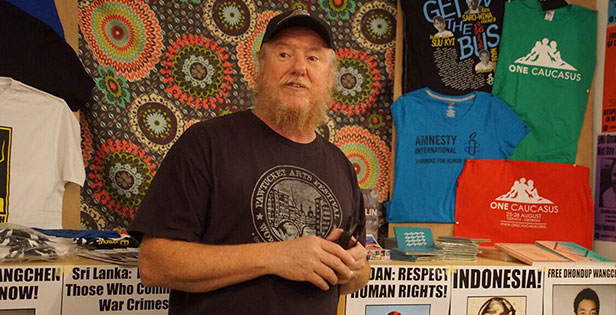July 19, 2018
Why T-Shirts and Activism Go Hand-in-Hand
Due to technological advances and the country’s divided political views, protest merchandise has never been more popular.
We asked screen printers and other industry experts why T-shirts and apparel play such a strong role in protests and activism. Here’s what they had to say:
Ryan Moor, Ryonet and Allmade Apparel: “They’re the new billboard of our generation. What gets printed on a T-shirt can literally change the world.”
Zach Corn, Barrel Maker Printing: “Since the 1960s, any kind of radical movement has T-shirts or 1-inch buttons. They’re kind of like a tattoo you can change your mind on.”
Valentin “Will” Taubin, Medina Silk: “They’re like a billboard you wear on your chest. They let an individual tell the whole world what he’s about and what he believes.”
Angela Ryan, Spreadshirt: “T-shirts are a basic marketing tool and also a very social piece of clothing. People like to wear them to make a statement. T-shirts are an easy way to show support and spread awareness of a cause, and from the organization’s standpoint, T-shirts are a great way to get your message out past the digital footprint and into the real world, right onto the street.”
Julia Li, Scalable Press: “T-shirts are a mobile way of communication with more longevity. They’re a wonderful conversation tool. You’re not going to carry the protest sign or sticker with you after the march, but when you literally wear your message on your back, people who identify with the cause or are interested in it will approach you and talk to you about it.”

Rick Roth of Mirror Image
Rick Roth, Mirror Image: “T-shirts can be a good way to give a voice to people who don’t feel comfortable speaking up. … Some groups stifled from speaking have used shirts because they can’t make you take them off. … They just reveal the shirts and don’t say anything.”
Andy Louis-Charles, Custom Ink: “Clothing offers a way to literally wear your opinion on your sleeve.”

Product Hub
Find the latest in quality products, must-know trends and fresh ideas for upcoming end-buyer campaigns.